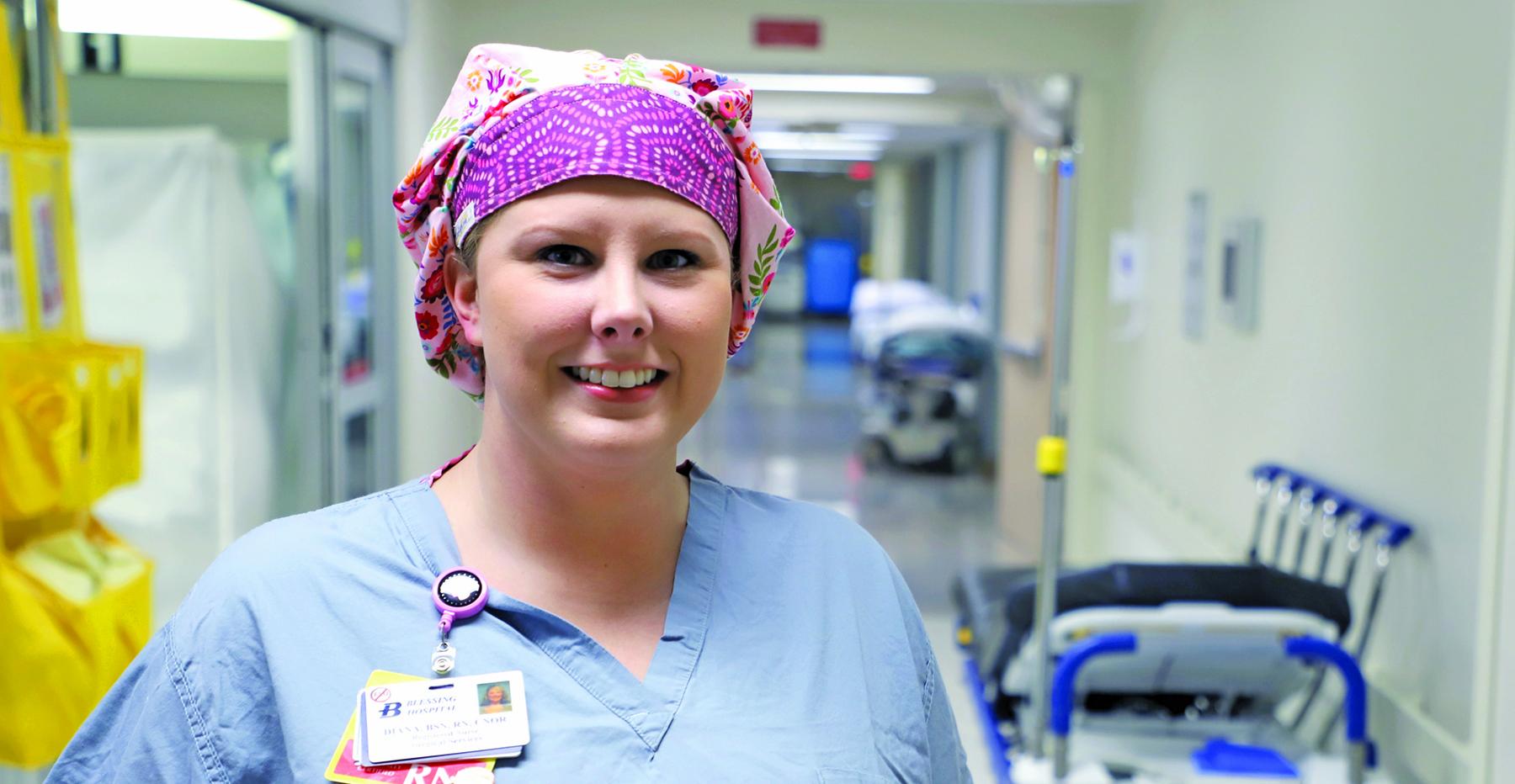“My managers have told me I have grown so much,” said Diana Weatherford, BSN, RN, Open Heart Surgery and Career Care participant (pictured above).
The goal of Career Care is to continue to promote high-quality nursing care by providing opportunities for registered nurses to experience professional growth and advancement. The program is based on the work of Dr. Patricia Benner and the levels of skill acquisition she identified: novice, advanced beginner, competent, proficient, and expert. Each level requires a defined amount of expertise and knowledge that becomes progressively more complex.
To participate in Career Care, nurses must achieve five components. Qualifications, clinical practice (exemplars), leadership/professional growth and contribution (points), continuing education (CEUs), and a clinical evaluation of skills. Any clinical nurse that has two years or more of RN experience, and is full- or part-time status, can participate in Career Care.
Compensation is another benefit of participation in the Career Care program. There are three levels of achievement, Levels 3-5. For those who earn those levels by meeting the standards and point totals required, a financial award is earned. Compensation ranges from $1,500 to $5,000 and is paid out as a differential on worked hours.
Diana was on the committee that developed the Clinical Ladder program and remains on the Steering Committee. As a result of her participation in Career Care, she earned her Bachelor of Science in Nursing and OR certification.
“Career Care promotes professional growth,” Diana said. “It gets you out of your comfort zone and taking a leadership role, doing things you might not ordinarily do.”
Diana found that Career Care was not all about doing extra activities. “A lot of the things required in Career Care, you already do, you just don’t realize it,” she said. “Career Care makes you realize those things. This is what we already do, why not document it and get compensated for it?”
Eydie Tipton, MSN, RN, CCRN, Nurse Researcher, Nursing Administration, says as nurses grow and advance through their experience in Career Care, future leaders are identified.
“We want to promote from within, Career Care helps us do so,” Eydie stated.
Career Care is also a recruitment and retention tool. “No one involved with the program since it began in 2018 has left the organization,” Eydie added. “But some have been promoted.”
Diana has used her Career Care experience to help shape the future of her nursing career. “I will continue to reach outside the box to continue to grow professionally,” she said.
Career Care for clinical RNs, C3s and UBEs
- Career Development: Provide an opportunity for staff nurses to develop a career path that recognizes professional practice excellence. We also promote leadership and development of frontline staff.
- Autonomy: Our goals are to expand nurses clinical accountability and decision-making skills. We empower nurses through shared governance.
- Recognition: We strive to attract and retain high-quality nursing staff at the bedside. We recognize and reward frontline staff who engage in clinical inquiry, education, research projects and evidence-based projects to improve empirical outcomes.
- Education: At Blessing, we promote a lifelong pursuit of expertise of the clinical nurse, and encourage exemplary practice, new knowledge and innovation.

